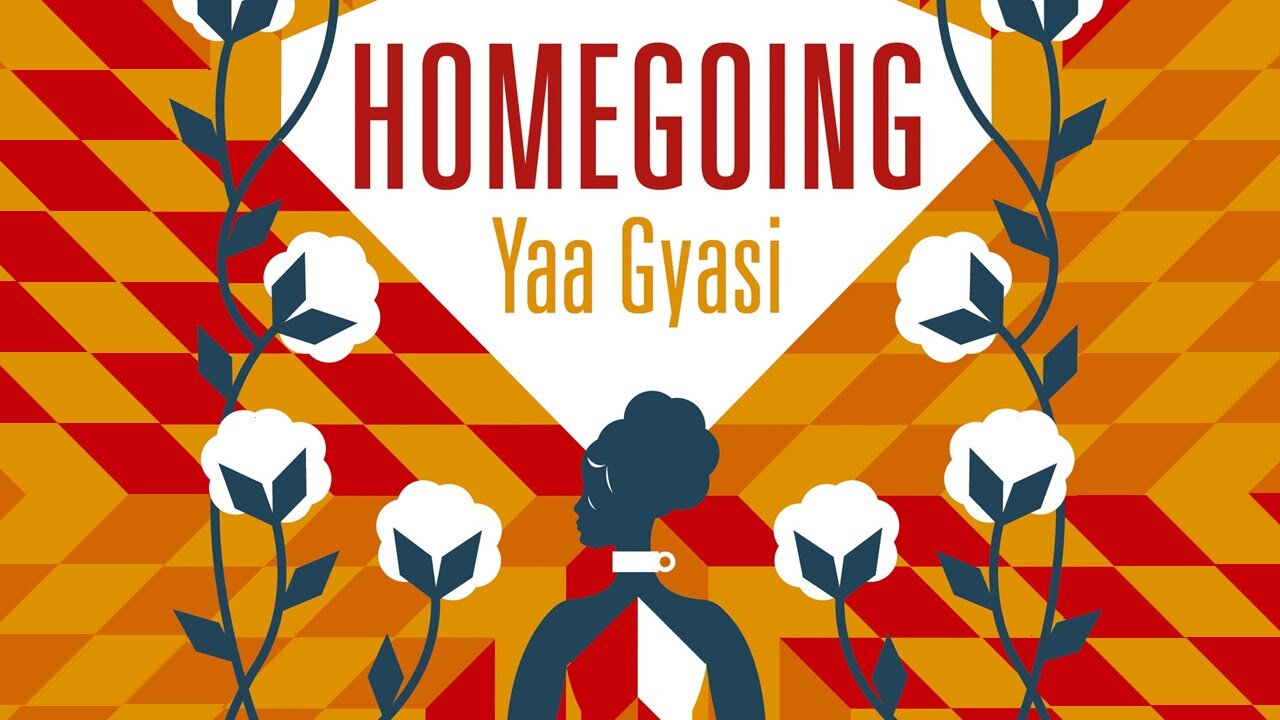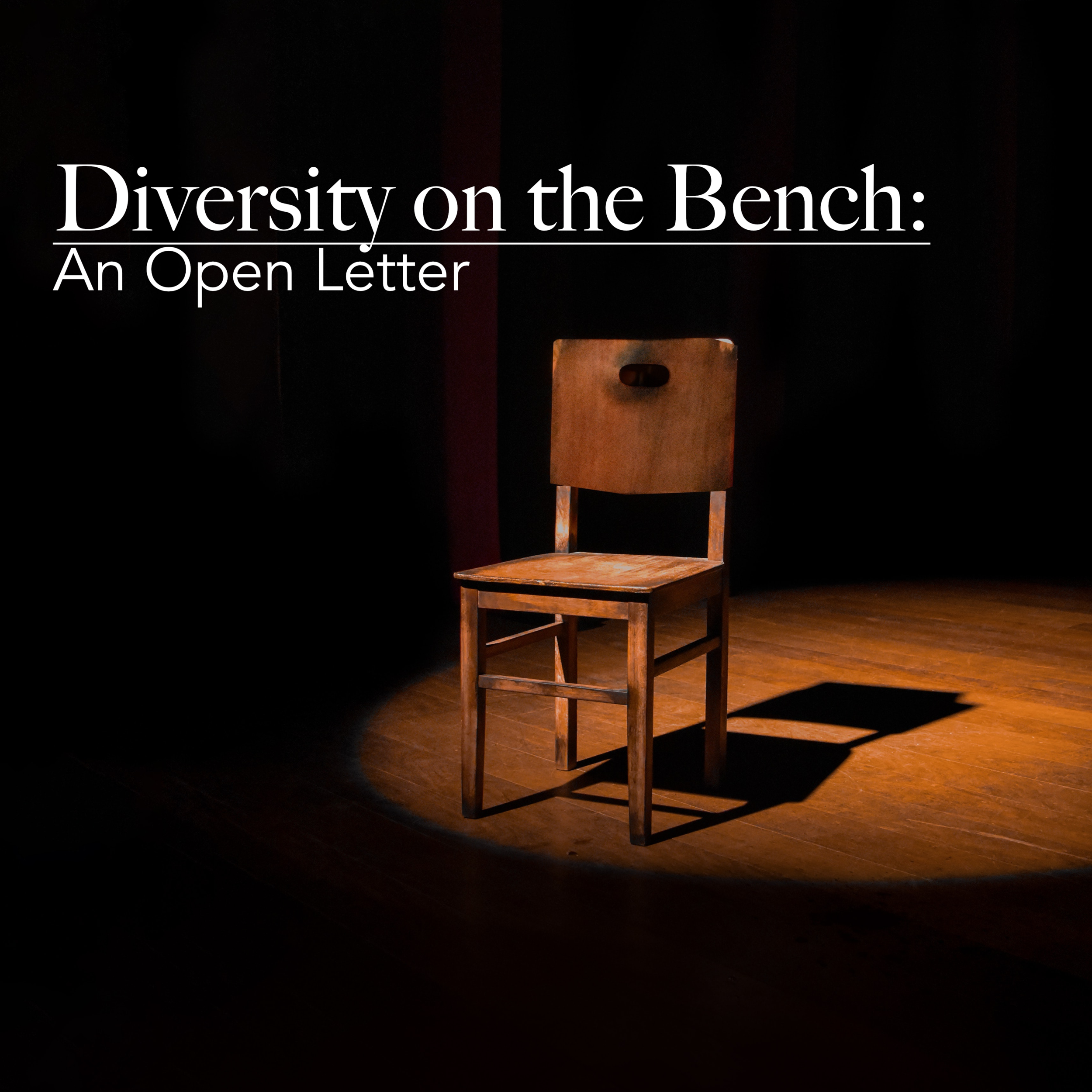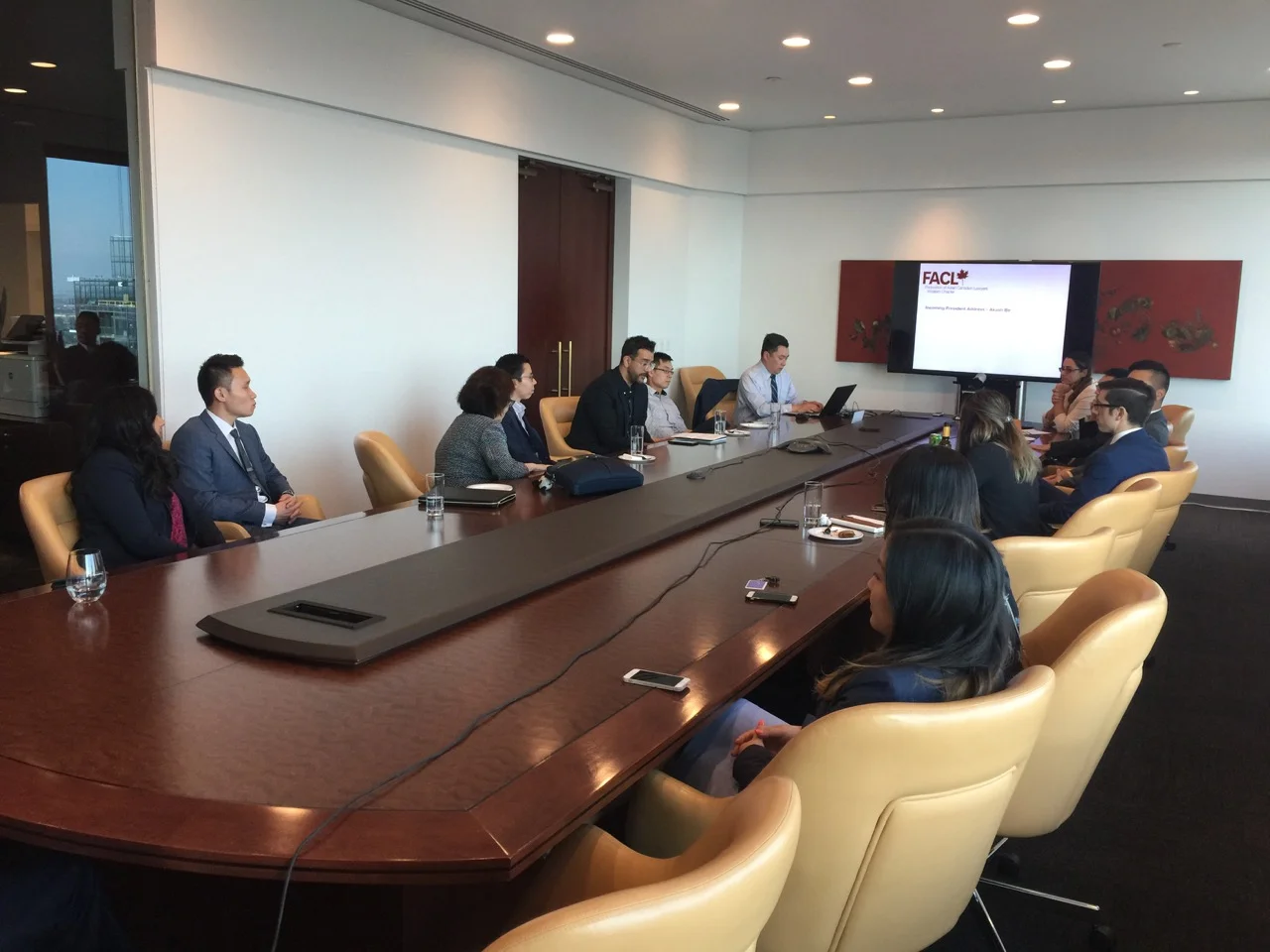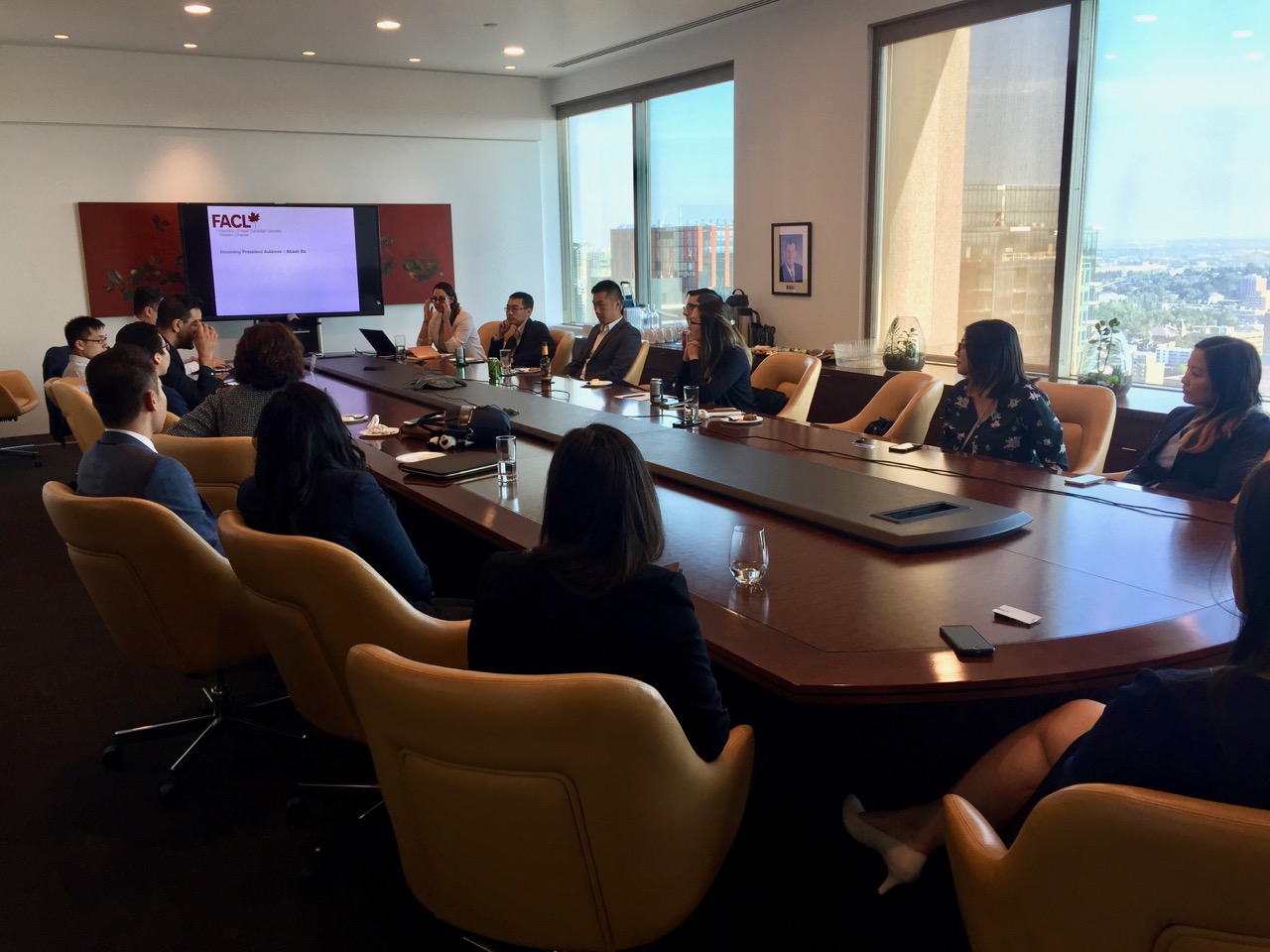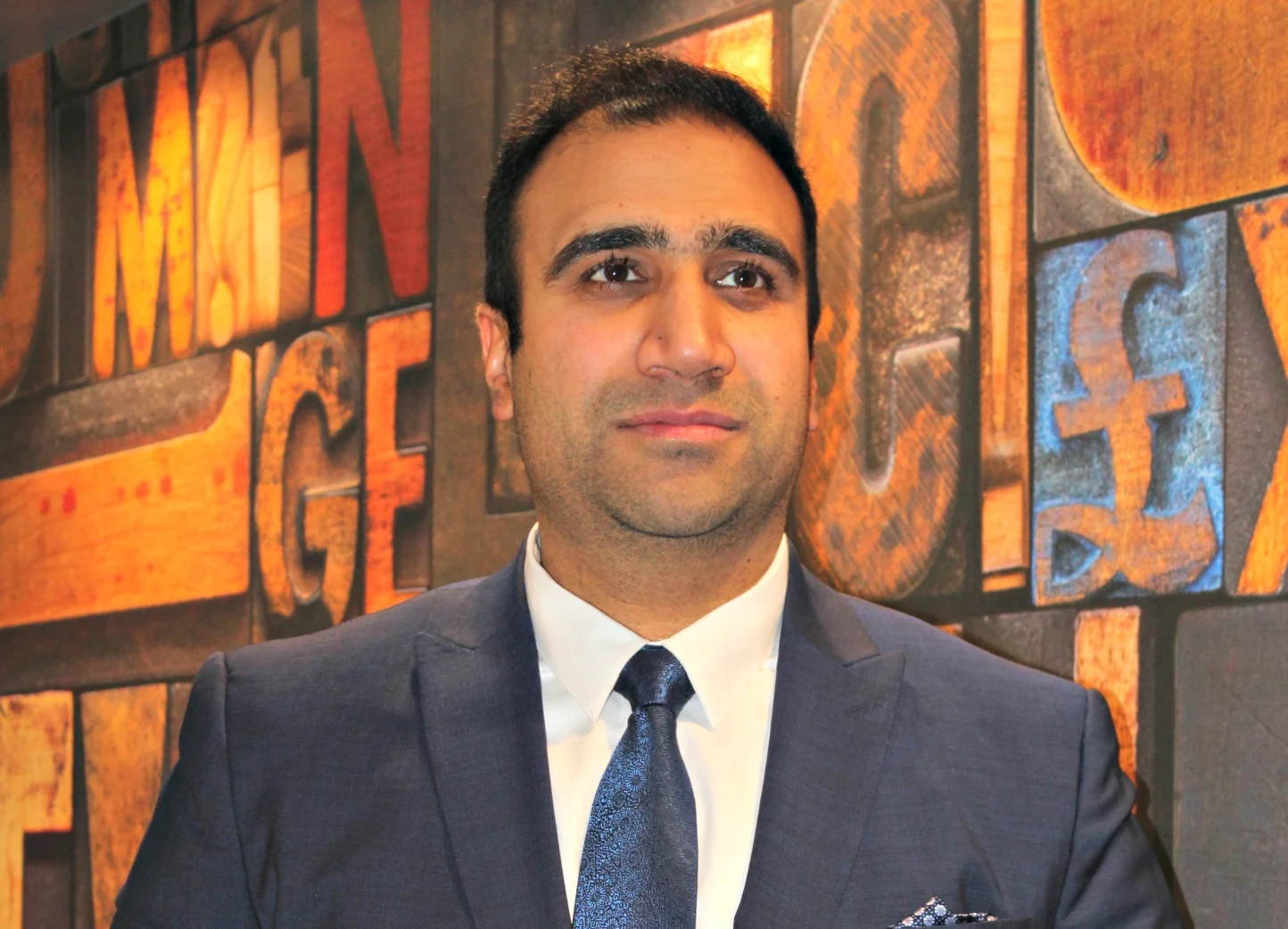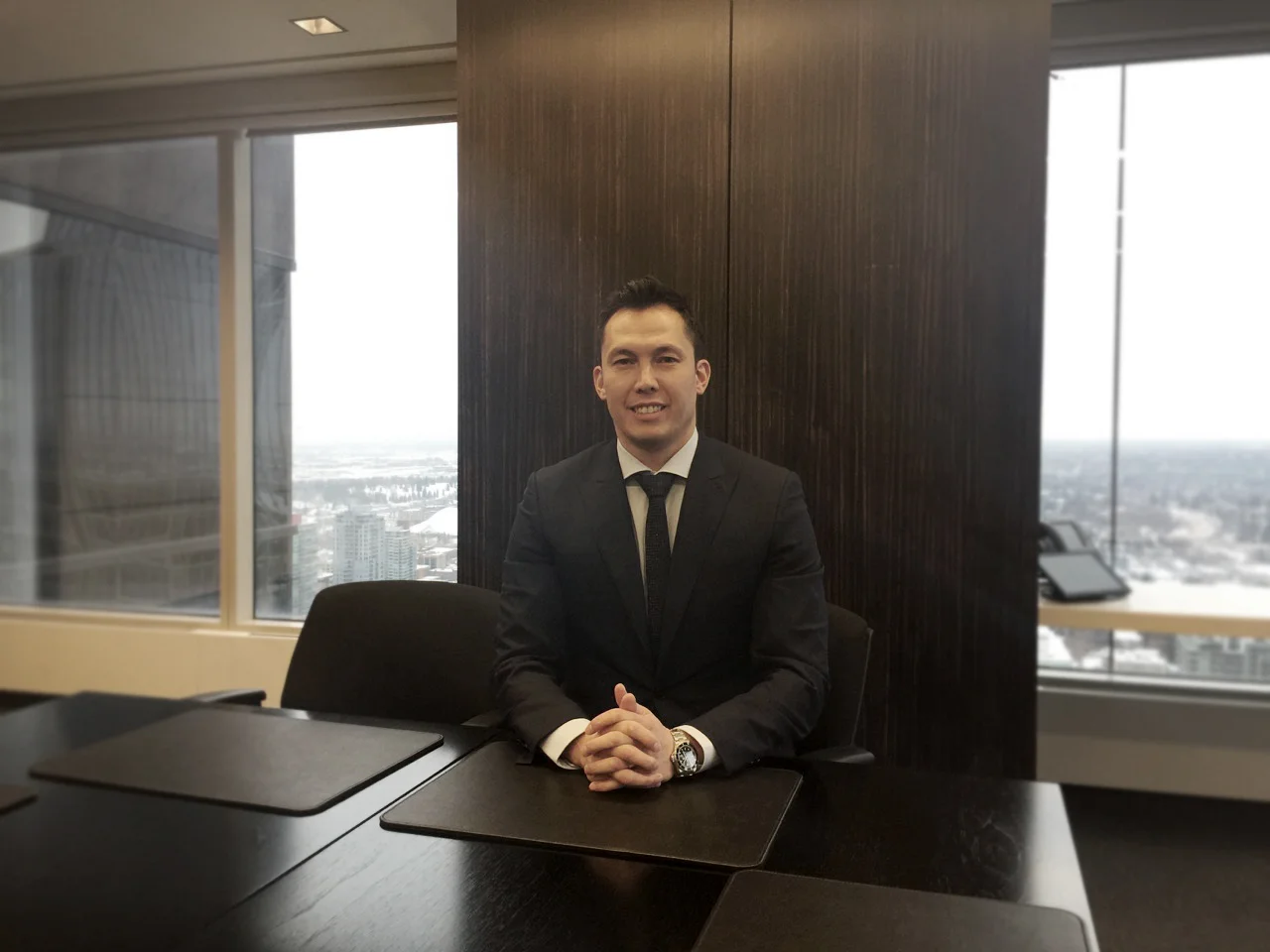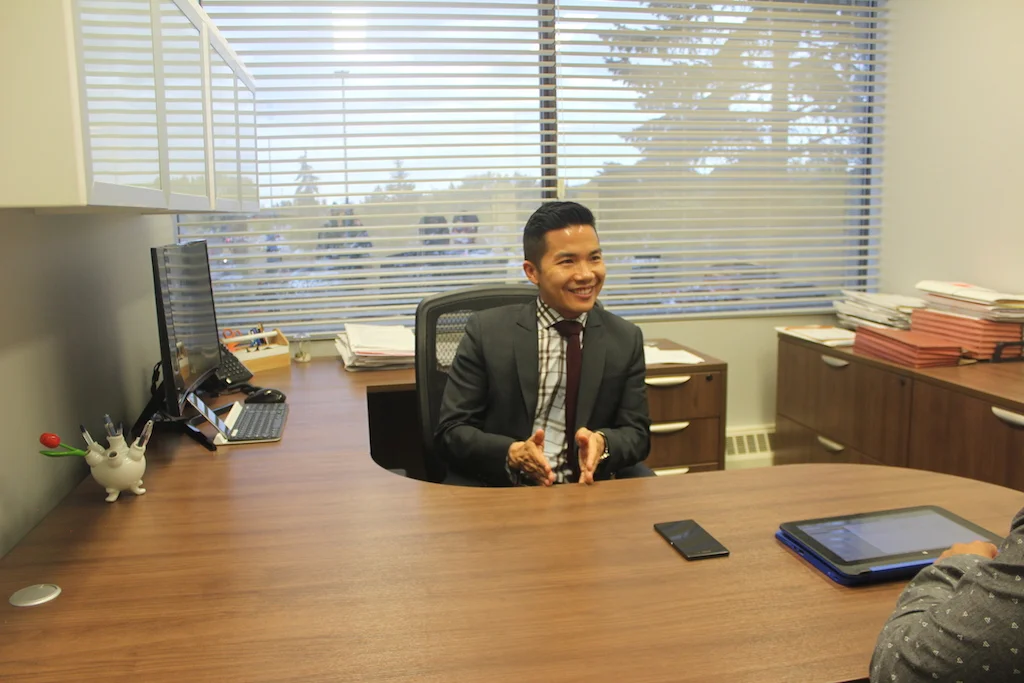
FACL and the LGBTQ+ Community
FACL and the LGBTQ+ Community
The Federation of Asian Canadian Lawyers (“FACL”) is a proud supporter of 2020 Western Canadian Pride. On September 14, FACL also hosted the Pride @ Work webinar. Pride @ Work was a panel discussion regarding the intersectionality between sexual orientation and race. Jas Badyal, Legal Practitioner and Dr. Sharanpal Ruprai, Professor of Women's and Gender Studies at the University of Winnipeg, highlighted the relationship between the LGBQT+ community and the legal community at large.
FACL and the LGBTQ+ Community
The Federation of Asian Canadian Lawyers (“FACL”) is a proud supporter of 2020 Western Canadian Pride. On September 14, FACL also hosted the Pride @ Work webinar. Pride @ Work was a panel discussion regarding the intersectionality between sexual orientation and race. Jas Badyal, Legal Practitioner and Dr. Sharanpal Ruprai, Professor of Women's and Gender Studies at the University of Winnipeg, highlighted the relationship between the LGBQT+ community and the legal community at large.
FACL’s core values are inclusivity and tolerance. FACL is motivated to stand with the LGBTQ+ community in addressing the disparities at every level of the justice system. FACL strives to raise awareness of the social and economic stigma faced by the LGBTQ+ community in work and personal life. As legal advocates, we remain open minded to advance conversations regarding equal justice and opportunities for the LGBTQ+ community.
In or around the months of June to August, cities worldwide celebrate Pride events to raise awareness for the LGBTQ+ community. The first events were held in 1970 in New York City, Chicago, Los Angeles, and San Francisco to commemorate the first anniversary of the New York City Stonewall riot, a pivotal moment in the LGBTQ+ community social movement.[1] In 2019, the largest Pride event in history was held in New York City, with over five-million people in attendance.[2]
1973 marked the first Pride events in Canada with Toronto, Vancouver, Montreal, Ottawa, Saskatoon, and Winnipeg hosting documentary screenings, dances, picnics, art festivals, and rallies.[3] To this day, Pride events continue to take place annually in Canadian Provinces. Although, Canada recognizes the LGBTQ+ community as a protected group, there are regular occurrences of discrimination that arise. Discrimination of the LGBTQ+ community serves as a call to action for our organization and members of the general public to continually promote equality.
We encourage you to refer to the following organizations and resources for additional information:
Edmonton
Pride Centre of Edmonton: https://pridecentreofedmonton.ca/
The Family Centre: https://www.familycentre.org/rainbow-pages
Queer YEG: https://www.queeryeg.ca/
Rainbow Alliance for Youth of Edmonton: https://rainbowallianceyeg.ca/
Edmonton Pride: https://www.edmontonpride.ca/
Calgary
Calgary Outlink: https://www.calgaryoutlink.ca/
Centre for Sexuality: https://www.centreforsexuality.ca/
Boys & Girls Clubs of Calgary: https://www.boysandgirlsclubsofcalgary.ca/our-impact/lgbtq25/
Calgary Queer Arts Society: https://www.calgaryqueerartssociety.com/
Calgary Pride: https://www.calgarypride.ca/
Saskatoon
OUTSaskatoon: https://www.outsaskatoon.ca/
Saskatoon Pride: https://saskatoonpride.ca/
Queen City Pride: https://queencitypride.ca/
Winnipeg
Out There Winnipeg: https://www.outtherewinnipeg.ca/
Manitoba LGBT Chamber of Commerce: https://mb-lgbt.biz/
Pride Winnipeg: http://www.pridewinnipeg.com/
Reaching Out Winnipeg: https://reachingoutwinnipeg.com/
On behalf of the Federation of Asian Canadian Lawyers Society
--
[1] https://web.archive.org/web/20160422105803/http://www.pbs.org/wgbh/americanexperience/blog/2011/06/09/pride-parade/
[2] https://abcnews.go.com/US/million-people-crowed-nyc-worldpride-mayor/story?id=64090338
[3] https://www.mindenpride.ca/history-of-pride/history-of-pride-in-canada/
FACL Western Response to COVID-19
FACL Western Response to COVID-19
Dear friends and supporters:
Since the first diagnosis of COVID-19 in Canada in February 2020, all communities have been adversely affected in a variety of ways. We write this open letter to highlight the experiences of one such community, the Asian-Canadian community, and to express our wholehearted sympathies and support amidst a marked increase in anti-Asian racism and discrimination.
FACL Western Response to COVID-19
Dear friends and supporters:
Since the first diagnosis of COVID-19 in Canada in February 2020, all communities have been adversely affected in a variety of ways. We write this open letter to highlight the experiences of one such community, the Asian-Canadian community, and to express our wholehearted sympathies and support amidst a marked increase in anti-Asian racism and discrimination.
In a June 2020 poll, over 500 Asian-Canadians, particularly of Chinese ethnicity, indicated they were called racist names and insults since the beginning of the pandemic. Nearly 3 in 10 of them were exposed to racist graffiti and social media messages. A separate study showed that there have been more reported racist incidents against Asian-Canadians per capita in Canada than in the United States. 60% of the reported incidents were targeted at women, and nearly 30 % involved some type of assault. As a result of misinformation about the COVID-19 virus, Chinese-owned restaurants and other businesses across the country have suffered losses and even closed their doors permanently. Similarly, South-Asian-owned businesses in Calgary were reported to have been heavily impacted after rumours of a “super-spreader” wedding occurred in the same Northeast plaza.
Beyond these trends, racial discrimination has also come from our own political leaders. On November 25, 2020, Premier Kenney appeared on RED FM, Calgary’s South Asian radio station, and singled out South Asian residents in Northeast Calgary with a “wake up call” as the cause of the largest spread of COVID-19 in Alberta. Many were seriously concerned with the scapegoating effect of his statement, which perpetuates stereotyping that a certain ethno-cultural demographic is unsafe and more likely to spread COVID-19. Premier Kenney’s comments are also problematic because they fail to recognize the much-needed resources for residents living in COVID red zones (including PPE and public health knowledge translation) and ignores other socio-economic factors which are significantly prevalent. While Premier Kenney said he did not intend to blame or target anyone, the effect of his comments was quite the reverse, as it demonstrated that racial discrimination, in a pabndemic, is permissible and justified.
Sadly, a recent string of violent incidents against Asian individuals in California have come to light – including multiple attacks against elderly Asian individuals – and these events have renewed the attention on anti-Asian racism during the pandemic. Even though the motivation for some of these assaults are still unclear, the ultimate effect of these attacks are nevertheless problematic, as it instills fear and distrust within Asian communities, especially amongst the vulnerable, elderly population.
As Asian-Canadians and members of the legal profession, FACL Western continues to speak out against any forms of racism and discrimination. FACL Western vehemently denounces these racially discriminatory acts, statements, sentiments and we stand in solidarity with all those affected by racism during this pandemic.
At a time when communities should unite rather than in-fight, FACL Western encourages community members to be an ally to Asian communities, and to each other, in their efforts to cope during this pandemic. In the face of fear, we urge understanding. In the face of misinformation, we urge education. You can stand in solidarity by condemning the terms “China Virus”, “Kung Flu” or other racist labels that promotes anti-Asian bias. You can use social media cannels to denounce hate speech, racism and misinformation. You can choose to support local businesses, many of which are owned and operated by individuals of minority groups. We believe that we can remain united while we are physically apart. We urge community members to support each other however they are able. Only then will we be able to persevere through 2021 and the enduring effects of COVID-19.
Black History Month: Instagram Book Contest
In celebration of Black History Month, FACL Western will be giving away a book by a Black author once a week. Our first book is Homegoing by Yaa Gyasi, a Heather’s Pick at Indigo and also recommended by FACL Western’s President!
In celebration of Black History Month, FACL Western will be giving away a book by a Black author once a week. Our first book is Homegoing by Yaa Gyasi, a Heather’s Pick at Indigo and also recommended by FACL Western’s President!
Winners will be selected by a random drawing among those who:
1. follow FACL Western on Instagram (@faclwestern);
2. like the post; and
3. make a comment on the post by tagging another IG user;
within the contest period: February 5, 2021 at 9 am PST – February 11, 2021 at 5 pm PST.
Additional Terms and Conditions:
All winners selected must answer this skill-testing question: (2 × 4) + (10 × 3) = ?
Contest begins on February 5, 2021 and ends March 4, 2021 with four distinct contest periods. All entries must be received by the deadline specified for each contest period.. No purchase is necessary. Prizes are not available for resale, non-transferable and cannot be substituted for another prize or cash. Odds of winning are dependent on the number of entries received.
Prizes awarded are as follows:
February 5, 2021 at 9 am PST – February 11, 2021 at 5 pm PST: 1 copy of Homegoing by Yass Gyasi with an approximate value of CDN$21.00.
February 12, 2021 at 9 am PST – February 18, 2021 at 5 pm PST: 1 copy of Punching the Airby Ibi Zoboi and Yusef Salaam with an approximate value of CDN$25.00.
February 19, 2021 at 9 am PST – February 25, 2021 at 5 pm PST: 1 copy of Stamped from the Beginning by Ibran X. Keni with an approximate value of CDN$25.00.
February 26, 2021 at 9 am PST – March 4, 2021 at 5 pm PST: 1 copy of The Skin We’re In by Desmond Cole with an approximate value of CDN$30.00.
All entrants and contest winners must be at least 18 years of age. The contest is not open to members of the Board of Directors of FACL Western. The contest is only open to all legal residents of Canada excluding Quebec.
Winners will be selected by a random drawing among those who:
follow FACL Western on Instagram (@faclwestern);
like the post; and
make a comment on the post by tagging another IG user.
All entries received within the contest period will be eligible for drawing. Notwithstanding the foregoing, any comment and/or photo including offensive, inappropriate, or vulgar imagery as solely determined by FACL Wesstern will be disqualified from the contest and removed from the contest post. In order to be declared a winner, a potential winner must be in compliance with these Terms and Conditions and correctly answer a mathematical skill-testing question. Non-compliance with these Terms and Conditions will result in disqualification and an alternate winner may be selected.
The contest winner will be notified by direct Instagram message within 1 business day following the end of the contest period. Once a winner is notified of their status, the contest winner must respond to the message within 24 hours in order to receive their prize. The prize will be shipped to the winner via mail. FACL Western is not responsible for lost, illegible, or stolen prizes. FACL Western is not liable for any losses, expenses or any other claims arising out of or in connection to participation in the contest.
Each entrant and winner further understands that this contest is in no way sponsored, endorsed or administered by, or associated with, Instagram and agrees to release Instagram of all responsibility in relation to the contest.
Personal information collected for the purpose of awarding the prize will only be used and disclosed for that purpose and in accordance with any and all applicable provincial and federal privacy legislation. By agreeing to the Terms and Conditions you give FACL Western the unrestricted right to publish the winner’s name on its Instagram page without further compensation. Contest is void where prohibited by law and is subject to all federal, provincial and local laws. This contest may be terminated at any time without prior notice.
FACL Western Presents: 2020 Winter Wine Survivor
FACL WESTERN PRESENTS: 2020 WINTER WINE SURVIVOR
Give back to our community and stock up for the January blues!
Join in on some virtual fun and stock up your wine rack for January. Your participation will help make a difference this winter season for the Calgary Food Bank.
FACL WESTERN PRESENTS: 2020 WINTER WINE SURVIVOR
Give back to our community and stock up for the January blues!
Join in on some virtual fun and stock up your wine rack for January. Your participation will help make a difference this winter season for the Calgary Food Bank.
HOW IT WORKS:
Registration phase: November 30 – Dec 13
· Between November 30 – December 13, send $30 to ng.elaine.y@gmail.com with the following details: Your name and email address.
· The $30 represents a bottle of wine ($15) and a charitable donation to the Calgary Food Bank ($15) and counts as one entry into the elimination draw.
· There is no limit to the number of entries per person, so feel free to sponsor a student or gift a friend an entry!
Wine survivor elimination phase: Dec 14 – Dec 18
· From Dec 14 – Dec 18, daily draws will be held and individuals will be eliminated from the “island”.
· The number of people eliminated each day will depend on the number of participants.
· The eliminations will be emailed to all participants.
Immunity:
· In true survivor spirit, there will be immunity. This means your name will be returned to the pot should it be drawn, with the exception of the final draw.
· If your name is drawn for elimination, you can buy your immunity. Immunity costs $15. Email ng.elaine.y@gmail.com with your name to buy back your immunity.
Final Draw:
· The last person standing in wine survivor will win half of the collected wine entries in the form of a gift card/physical bottles of wine.
· The winner will be announced by email.
The more people participating means more wine to be won, and more donations to be collected for the Calgary Food Bank, so sponsor a student, gift an entry, and feel free to invite your friends and family to participate!
JOIN US IN GIVING BACK TO OUR COMMUNITY AND WIN SOME WINE!
Diversity on the Bench: An Open Letter
Re: Appointment of BIPOC judges to Canada’s Federal Courts
September 30, 2020
Hon. David Lametti, PC, MP
Minister of Justice and Attorney-General of Canada
House of Commons
Ottawa, ON K1A 0A6
Dear Minister Lametti:
Re: Appointment of BIPOC judges to Canada’s Federal Courts
We are writing in support of the September 14, 2020 letter submitted to you by the Canadian Association of Refugee Lawyers and 35 signatory organizations calling for your immediate action to increase representation in judicial appointments to the Federal Court. We urge you to immediately appoint Black, Indigenous and People of Colour (BIPOC) judges to the federal courts and to reform the appointment criteria for their appointments to ensure that the experiences of BIPOC applicants are recognized and reflected in the panel of their decision-makers.
It is clear that the current members of the Federal Courts do not reflect the racial diversity of Canada. Only two BIPOC judges sit on the Federal Court’s roster of 35 judges and 9 supernumeraries. We echo the references of the September 14 letter to statements made by esteemed justices of the Supreme Court such as Chief Justice Richard Wagener and former Chief Justice Beverley McLachlin on the importance of representation on the bench to accurately reflect the applicants appearing before the court. Despite naming judicial diversity to include people of all gender identities, Indigenous Peoples, racialized people, persons with disabilities and minority groups as a priority for this Government in 2015 and the reaffirmation of this priority in 2019, there has been little change. Since the 2016 overhaul of the judicial appointment process, only 3% of federal judicial appointments self-identify as Indigenous and 8% as visible minorities.[1] We similarly echo the observation of the Parliamentary Black Caucus that consultation, studies, reports, and proposals no longer suffice to address the issue of lacking diversity in the judicial system.[2] Canadians and applicants to the federal judicial system need change now.
On this basis, we propose these two immediate calls to action:
1. Appoint BIPOC judges to the six current vacancies on the Federal Court of Canada.
Last year, the Judicial Advisory Committees recognized 13 Indigenous and visible minority applicants as “Highly Recommended”, but the judicial appointments did not reflect this reality. Of the 86 judges appointed last year, only two were Indigenous persons and four were visible minorities.[3] At this time, there are no female BIPOC judges on the Federal Court.
With this startling backdrop, we turn our attention to the current six vacancies in the Federal Court. We advocate that these vacancies be filled with BIPOC judges with particular attention to female and female-identifying BIPOC candidates in order to address the unique issues at the intersection of gender and race faced by female BIPOC individuals. Seeing as there is no shortage of qualified applicants from Indigenous and visible minority groups, appointing BIPOC judges should be no feat at all. The effects of this would be overwhelmingly positive in advancing diversity, inclusion and representation in the judicial system as but one of many steps to righting the detrimental effects of institutional racism in the history of Canada.
2. Reformulate the assessment criteria for judicial appointments to take into account systemic barriers that impede the appointment of BIPOC judges and implement an overarching commitment to appoint BIPOC judges.
We reaffirm the recommendations of the September 14 letter, namely two courses of action to amend the judicial appointment assessment criteria:
1) a recognition of barriers that uniquely and disproportionately impact BIPOC candidates; and
2) the insertion of criteria to encourage the nomination and appointment of BIPOC candidates.
The requirement that a candidate speak English and French has posed an obstacle to the appointment of BIPOC individuals to the Supreme Court. While bilingualism is not required for appointment to the Federal Court or Federal Court of Appeal, it is listed among the assessment criteria. Since BIPOC candidates are not well-represented among those who are functionally bilingual in Canada’s two official languages[4], bilingual ability as an assessment criterion forms a systemic barrier to the appointment of BIPOC individuals.
Secondly, we compel the creation of clear guidance for Judicial Advisory Committees in their charge to generate a pool of candidates that is “gender-balanced and reflective of the diversity of each jurisdiction.” We repeat and adopt the recommendations of the September 14 letter that the Judicial Advisory Committees keep the following in mind:
1) an underlying goal in the amendment of assessment criteria to recognize the impact of institutional racism in the judicial system to prioritize BIPOC applicants until racial parity in the judiciary has been reached; and
2) BIPOC candidates offer skills and perspectives that are not necessarily captured in the current rigid requirements such as the bilingualism requirement and membership in a BIPOC community should be inserted in the characteristics of the assessment criteria.
Each passing day with the status quo perpetuates the long history of institutional racism in Canada and the failure to recognize the lived experiences and perspectives of BIPOC individuals through decisions made by individuals who do not reflect the cultural fabric of our country.
Yours Sincerely,
Federation of Asian Canadian Lawyers (Western Chapter)
[1] Stefanovich, Olivia, “Federal Court justice says judicial diversity targets need ‘aggressive’ timelines,” CBC News, June 30, 2020, https://www.cbc.ca/news/politics/stefanovich-diversity-justice-system-1.5625586.
[2] Statement by the Parliamentary Black Caucus. (June 16, 2020) https://assets.documentcloud.org/documents/6949654/BPC Statement-Bilingual.pdf
[3] Office of the Commissioner for Federal Judicial Affairs Canada, “Statistics regarding Judicial Appointments and Appointees,” https://www.fja.gc.ca/appointments-nominations/StatisticsCandidate-StatistiquesCandidat-2019-eng.html
[4] Beg, Samreen and Lorne Sossin. "Diversity, Transparency & Inclusion in Canada’s Judiciary." (December 2016). Debating Judicial Appointments in an Age of Diversity.
Congratulations to Judge Lindy Choy - 2019 Citizen of the Year Golden Dragon Gala
Congratulations to Judge Lindy Choy of the Provincial Court of Manitoba on being awarded a Golden Dragon Award by the Winnipeg Chinese Cultural and Community Centre.
Congratulations to Judge Lindy Choy of the Provincial Court of Manitoba on being awarded a Golden Dragon Award by the Winnipeg Chinese Cultural and Community Centre. Judge Choy was presented with her award at the 2019 Citizen of the Year Golden Dragon Gala along with fellow honourees Winnipeg Mayor Brian Bowman and Lifetime Achievement Award honouree Terry Prychitko. Judge Choy has always been committed to giving back to the community and has served on the boards of the Manitoba Children’s Museum and the United Way of Winnipeg. She also manages an all-women dragon boat team which participates in the annual River City Dragon Boat Festival. In 2015, she was appointed to the Provincial Court of Manitoba where she is proud to preside as the first judge in Manitoba of Chinese descent.
2018 AGM & New Directors
On August 21, 2018, we held our 2018 Annual General Meeting at Miller Thomson LLP Calgary.
On August 21, 2018, we held our 2018 Annual General Meeting at Miller Thomson LLP Calgary. We were also joined remotely by members and executives in Vancouver, Edmonton, Saskatoon, and Winnipeg.
Akash Bir was elected as the new president of FACL Western, and Jessie Gill has now officially stepped into the role of the Immediate Past President. George Wong was also voted in as the President-Elect, forming our three person executive team. The three person executive system ensures a smooth transition and efficient succession planning for our organization.
We also elected a new slate of incumbent and new directors:
DIRECTORS
- Akash Bir (President)
- George Wong (President-Elect)
- Jessie Gill (Past President)
- Ron Lo
- David Tam
- Hansen Wong
- Julie Kim
- Victor Lee (new)
- Holly Wong (new)
- Justin Pon (new)
STUDENT DIRECTORS
- University of Calgary
- Joshua Mamdani
- John Jiang (new)
- University of Alberta
- Yang Wang
- University of Saskatchewan
- Krystin Wang
- University of Manitoba
- Ingrid Ruiz (new)
We want to recognize Yulin Shih, Douglas Lee, Jason Paw, and Steven Ngo for their dedication and service to FACL Western as they retire from their respective director positions. Steven Ngo will continue as an advisor to FACL Western and will serve on our strategic advisory committee.
Thank you for your continued interest and support, and we look forward to seeing you at our next event!
If you're interested in getting involved with FACL Western, please reach out to info@faclwestern.com.
Spotlight Series: Sanjiv Parmar
We are honored to present our candid conversation with Sanjiv Parmar of Parmar Law (www.parmarlaw.ca). In our conversation, Sanjiv tells us the story of how his faith inspires his practice and how his experience as a former Crown Counsel influences the way he conducts himself as a legal professional. We are happy to share a glance into Sanjiv’s story in this Spotlight Series interview.
We are honored to present our candid conversation with Sanjiv Parmar of Parmar Law (www.parmarlaw.ca). In our conversation, Sanjiv tells us the story of how his faith inspires his practice and how his experience as a former Crown Counsel influences the way he conducts himself as a legal professional. We are happy to share a glance into Sanjiv’s story in this Spotlight Series interview.
Rafael Badiola
What inspired you to pursue the legal profession?
As a Sikh, I attend the Gurdwara, the Sikh temple, regularly and read from the Guru Granth Sahib, which teaches the concepts of Simran and Seva — to meditate and to assist the community. My faith helped me develop a passion for helping others. Sikhism continues to influence my practice up to this day. Parmar Law’s logo is a lion and a khanda. I chose the lion as it symbolizes courage. A khanda, in Sikhism, symbolizes truthfulness. Taken together, my logo means the courage to speak the truth, which continues to inspire me in my day-to-day practice. The logo is also in the shape of a P and an L for Parmar Law.
My family taught me from a young age that education and hard work is very important. I took a legal studies class in high school and it opened my eyes to a lawyer’s ability to affect the lives of others and advocate for the less fortunate. Lawyers can make the world a better place by working hard to advocate for people being taken advantage of and righting various injustices in the community. I feel blessed to be practicing law and pleased to be a mentor to an increasing number of lawyers in Calgary. I hope to see lawyers of various backgrounds take on more senior positions in the future.
What was the most challenging thing to date that you faced as a lawyer in Calgary?
For me, it was when I decided to start my own firm. Putting up your own shop is a daunting task as you are on your own – you have to navigate through things such as trust accounting, setting up systems and policies, developing precedents, looking for an office space, building your brand, and on top of it all, getting clients.
My education helped me a lot in overcoming the challenges of starting my own firm. My Bachelor of Arts in Political Science (Minor in Management and Society), Bachelor of Commerce, and Juris Doctor – all from the University of Calgary gave me the foundation for understanding and maneuvering through the various challenges I faced. I was also fortunate to have had some amazing work opportunities. My seven years at TD Canada Trust, where I worked as acting manager on some occasions, taught me how to provide strong customer service experience. I also interned at the Canadian Embassy in Washington, D.C. after law school. There, I attended think tanks, focus groups, congressional hearings and conferences on behalf of the government. I noticed the need for more legal representation for both domestic and international concerns and gained the ability to market, build and foster relationships. I also articled at a small general practice and was also an associate at a medium sized firm in downtown Calgary, where I learned how to deal with clients and first learned of lawyers’ various day-to-day responsibilities and of the business of law. I followed that experience by working at Alberta Justice, where I learned how to carry myself as a professional and as a member of the bar. All these skills greatly help me as a sole practitioner.
I had extensive experience in child welfare, family, criminal, immigration/refugee and employment/human rights law in private practise and then child welfare and family law with Alberta Justice; therefore, I decided to practise in these areas, along with child representation. These experiences helped me develop a niche within domestic violence and child welfare and also grow a practise in human rights and refugee work.
As a sole practitioner, where do you turn to for support?
I have had the privilege to work under and with some amazing lawyers. A highlight of my career was that very early on I had the fortune of working with the great Charlie Stewart Q.C. I was only able to work with Mr. Stewart for a few months prior to his passing. Despite the short amount of time, the lessons that I learned were invaluable. Mr. Stewart taught me various things such as how to analyze information, build cases, and how to examine evidence and run hearings. Mr. Stewart also trusted me with working on some very big cases early on in my career, which gave me more confidence. I was always in awe when I would attend court as Mr. Stewart’s agent, as he was very respected by his peers and judges alike. I was very inspired and looked up to him.
Throughout my legal career, I have been honoured to work with lawyers of diverse backgrounds, including in terms of faith, race and gender, whom are some of the best lawyers in the city. The various lawyers that I have had the pleasure of working with are very approachable and are willing to communicate regarding any questions that I may have about the practice of law.
The Canadian Bar Association is also an excellent source of support. The CBA frequently holds lunches where an expert lawyer or judge in a particular area of law is gracious enough to share their deeper insights. Not only have I learned a lot by going to these lunches, I am also able to connect with my colleagues and strengthen my professional network. I am also fortunate to reinforce and share my skills by speaking at these CBA meetings on various topics and on behalf of the Alberta Lawyers’ Assistance Society, in which I am a peer support volunteer. I highly recommend the CBA to any lawyer who needs support of any kind regarding the practice of law, and to get involved with executive positions, as I am with the Child Welfare section.
How did your experience as a Crown counsel help your practice?
My experience at the Crown’s office taught me a lot of things. Among other things, the Crown taught me how to conduct myself as an officer of the court, how to organize files, how to interact with clients and different professionals, and how to cordially work with opposing counsel. When you are working for the Crown, you are working for Alberta. You represent the government as a Crown Counsel, and the way you carry yourself is very important. On the other hand, when you are in private practise, you have different goals and it can be easy to forget your responsibilities as an officer of the court and become too emotionally invested in your files.
My experience with the Crown helps me to remain calm, which ultimately helps me help my clients by allowing me to see the big picture and articulate better for them. Being able to calmly consider situations is very important as doing so enables you to see facts and legal issues that you may not see if you are very emotionally invested. Avoiding being too emotionally invested in files also helps lawyers from being burnt out, which is more common in the community than we would like. I’d like to think of it as like a doctor or physician. While a doctor may maintain empathy towards their patients, they are still emotionally uninvested. You do not go to a doctor to have them take your side emotionally. You go to the doctor for them to tell you how things are, for their unbiased diagnosis, and for their advice going forward. You rely on their expertise and knowledge. This is what lawyers should be – lawyers not being too emotionally invested in their files helps them become stronger lawyers.
You were recognized as one of Calgary’s Best Mentors by the Sikh Youth of Calgary in 2017. Why do you choose to mentor?
I was approached by the SYC’s mentorship committee to mentor a University student who was thinking of applying to law school. The experience was amazing. I was named as the Mentor of the Year. My mentee won the Mentee of the Year, a scholarship, and is now actively involved in the community. I have been mentoring more students ever since. These students have given me as much as I have given them. They reaffirmed my passion for what I do. Sometimes it is easy to get bogged down with work. It is nice to remember how privileged we are as lawyers. We sometimes forget that it can be difficult to get into university and do well in university; that it is also difficult to do well in the LSAT and get into law school; and even after doing all of that and doing well in law school, it is even more difficult to get articles. All of these things are privileges and we are fortunate to have succeeded so far that sometimes we forget all of the hardships that we have been through. They reaffirmed my excitement to be a lawyer and to be able to give back to the community and help them attain their dreams and aspirations as well. I am also now really good friends with my mentees and through this program I was able to be involved in other community initiatives.
I advise my mentees and other lawyers that you need to be yourself. If you try to act outside of your personality, it usually does not work. Continue to educate yourself. Seek hands-on experience and volunteer. Be humble and professional, but don’t be afraid to speak the truth and don’t be afraid to fight for what you think is right. Don’t be afraid to show your passion. Be confident in your abilities. I think the key to this line of work is to find an area that you are passionate about, as when you enjoy and find purpose in your work, success shall surely follow.
What are the things that make you feel the most sense of accomplishment as an advocate?
My law firm’s tag line reads “Listen, Advise and Advocate.” I believe that these are the pillars to being a great lawyer. I feel accomplished every time I follow this mantra. I see to it that I follow this mantra for each of my clients. It helps me put my clients in a better position than what they were in before they came to see me. As their counsel, I ensure that I listen and pay attention to my clients’ specific concerns, which allows me to properly advise them and then advocate for their rights and position.
What are your plans for the future?
I want to be able to take Parmar Law to greater heights. It has been going very well, and we are currently in a position where we could hire more individuals. I want to be able to continue to help the people of Calgary by being the best lawyer that I can be, and for Parmar Law to be known as one of the best firms in the city. I would also like to start taking more work regarding international human rights initiatives.
In the meantime, I would like to maintain going to the gym and spend more time with friends and family. I would also like to continue to travel the world. I recently learned how to play a Harmonium, which is a classical Indian instrument, during my trip to India. I plan on getting better at it.
Spotlight Series: James-Scott Lee
We were pleased to interview James-Scott Lee, a partner at McCarthy Tétrault LLP’s Calgary office and a member of the firm’s business law practice. Over a candid conversation, James shared his story of growing up in Vancouver, his decision to pursue a law degree and the unique career path he took to Calgary. We are pleased to present his personal story in this Spotlight series interview.
We were pleased to interview James-Scott Lee, a partner at McCarthy Tétrault LLP’s Calgary office and a member of the firm’s business law practice. Over a candid conversation, James shared his story of growing up in Vancouver, his decision to pursue a law degree and the unique career path he took to Calgary. We are pleased to present his personal story in this Spotlight series interview.
Roy Lou
Q: You went from business to law, how did that happen?
The first time I thought about being a lawyer was when I was about 10 years old. My aunt had a property dispute and hired a prominent lawyer, Thomas R. Berger Q.C., to act on her behalf. The fact that my aunt spoke so highly of him sparked my interest in law.
But I was always interested in business as well. This stemmed from my aunt and father who were quite entrepreneurial. In 2002, I graduated from the Sauder School of Business with a degree in Marketing. When I graduated, employment prospects in the industry were bleak as the tech bubble had burst the year prior. Out of interest, I took an elective about the intersections between law and business. I loved it and decided to make the jump to law school and graduated with a JD from UVIC in 2005.
Q: Can you talk about your law school experience and extra-curricular you were involved with?
There were two particular experiences which stood out to me. The IP Program at Oxford and the Law Centre at the University of Victoria. During one of our first days in the university town, we witnessed President Bill Clinton attending Chelsea Clinton’s convocation with the secret service in tow. It was an eye-opening experience. Volunteering at the Law Centre taught me the importance of compassion and empathy for those less privileged.
I have to say, however that my biggest takeaways from law school were the lifelong friends I made and the skills I gained. Law school makes you jump through a lot of hoops. You have to be resilient and see things through to their conclusion. It also teaches you drive which will serve you in anything you do in your life. Attention to detail and working with others are also incredibly valuable traits I picked up.
I think a lot of people feel like they have to practice law, but I actually think a law school graduate has a variety of interesting options they can explore.
Q: Did you ever think about litigation or have you always been set on corporate law?
Once I started law school, I knew that corporate law was right for me. I really enjoy working with clients and advocating for their best interests. Advocacy really isn’t just reserved for litigators, it is something I do daily for my clients.
Q: How did you end up in Calgary from UVIC?
I ended up articling at a very small corporate commercial firm in Vancouver. It was a fine place to article but my principle was near the end of his career in 2006 and he wanted me to buy into the practice. I was essentially at a cross roads in my career.
I felt like if I wanted to work in teams, with like-minded people, and tackle complex big firm files I would have to move to a larger platform. Hence, I made the move to Calgary late in 2007 to a national firm and never looked back. Calgary is an inviting city and a great place to establish a career.
Q: Did you have a role model or a mentor when you were a young lawyer? Can you speak to the impact they’ve had on your career?
My role models include lawyers, clients, friends and family members. I work with such an amazing group of professionals on a daily basis that it is easy to find great mentors. I try to pick certain traits from everyone I work with; that has been an important part of my professional growth.
I think early in your career you should identify people that have had success and create opportunities to learn from them, like setting up coffees, lunches, and after work drinks. Everyone has something, a skill, experience or story, that you can learn from, just don’t be too shy to ask. I think it is also important to keep in mind that you can also learn from people who are junior to you and not necessarily just senior partners.
Q: Can you talk about the growing pains of a lawyer?
I think as a good lawyer you always have a healthy sense of self-doubt, until you have done your research and due diligence. One of the great benefits of being at a large firm is the pool of resources you can drawn on which certainly helps. For most people, I’d say that you would have to be in practice for 7 or 8 years before you feel comfortable running a moderately complex file. As important as it is to know substantive law, it is just as important, and maybe more so, to admit what you do not know.
Q: What do you consider to be the accomplishment in your career which you are the most proud of?
As an associate, I recall working late on the financing for a gas plant. There were about a million moving parts and most of the recognizable banking lawyers in Calgary were on the file. The significant moment came on the morning of closing, after an all-nighter, when all the parties were on the call and I could confirm at that point that the Bank was ready to fund. There was no champagne, but since the days of the Trust conversion, that doesn’t happen anymore anyways, does it?
Q: Could you speak about the importance of giving back and community involvement?
Other than my family and children, I’m passionate about helping those less fortunate. I think giving back is incredibly important and whether you are fortunate or not you’ve relied on the charity of people all your life. I certainly have, from my parents, family, colleagues and many others. I think it also keeps you engaged in the community and helps you focus on what is really important. In this Canadian society, we have to make sure the vulnerable and less fortunate aren’t left out in the cold.
One of the projects I’m really passionate about is Ping Pong for a Purpose, which raises money for the Calgary food bank. Mike Hoffman and Ryan Wales of ATB Financial, the founders of the non-profit, asked me to join this past year as a board member. In the last two years we have been able to raise approximately $27,000 through our charity events. The great thing about the Calgary Food Bank is for every dollar donated, they are able to distribute $5 worth of food.
Q: Do you feel like there any negative stereotypes still attached to Asian Canadian lawyers?
I think if there is a meekness stereotype, it is probably derived from the Asian culture’s emphasis on being deferential to elders as a matter of respect. I think young lawyers should realize that you can be respectful and still provide your input or opinion. We hire young, smart people to tell us what to do, so if they feel like they can’t share openly, we have to look at that. In any event, there has been tremendous push in the legal community to be more inclusive and progressive in the last decade or so.
Q: What would you like to see FACL as an organization accomplish in the immediate future?
I think FACL is still a young organization that has lots of legs. Increasing awareness and membership from people in and outside of the Asian community should be paramount.
FACL should focus on establishing its profile in the community in addition to building ethnic diversity in the profession. I think people want to be associated with a group that’s focused on ethnic diversity, but that is also charitable in its own right. I think the way a group is going to gain recognition and support from the larger community is to place emphasis on raising money, awareness or volunteering for issues that relate to the larger community. Poverty, famine, drug abuse, mental health are issues that affect people from every ethnic background. This kind of community involvement will only help to make FACL more dynamic and set the organization up for the long haul.
Spotlight Series: Jonathan Ng
We recently had the privilege of interviewing Jonathan Ng, who practices Wills and Estates at Underwood Gilholme. In our conversation, Jonathan reflects on how he succeeded in securing a fruitful and fulfilling practice. We are delighted in having the opportunity to share the story of a lawyer who is dedicated in advocating for his clients’ wishes in this Spotlight Series interview.
We recently had the privilege of interviewing Jonathan Ng, who practices Wills and Estates at Underwood Gilholme. In our conversation, Jonathan reflects on how he succeeded in securing a fruitful and fulfilling practice. We are delighted in having the opportunity to share the story of a lawyer who is dedicated in advocating for his clients’ wishes in this Spotlight Series interview.
Rafael Badiola
Out of all your accomplishments, what motivates you the most?
I enjoy helping the clients. I know it sounds cliché, but people come in with a very strong wish or set of wishes. It is inspiring if I can successfully advocate for those wishes. In addition to the actual content of the work, I am also a business owner. I am motivated by maintaining my business, growing it, and working with my colleagues who are very passionate about the practice.
I also look forward to becoming a father. I have a great father who worked very hard. He came to Canada, along with my mother, from the Philippines and I am grateful for the values that they instilled in me such as hard work and dedication to the family. I can only hope that I can be half as good to my children as my parents were to me.
What were some of the challenges that your family faced when you moved to Canada? Did you face any challenges as a Filipino lawyer in Calgary?
My parents immigrated to Canada in the early 1970’s and were the first members of their families to settle in the country. Although they had the benefit of professional degrees from the Philippines, they had to work very hard to demonstrate their worth. As a second generation Canadian, I often take for granted the network of people that have helped me along the way and that were less accessible to my parents as they built their careers from scratch.
The Filipino population in Calgary is still relatively new and not well represented among professionals. I regularly find myself being the first Filipino lawyer that many people meet, but I wouldn’t say that I have faced any challenges thus far. Some of my clients are curious about my background and appreciate my family story.
You were formerly an environmental engineer. What made you decide to switch to a law career?
As an environmental engineer, I spent a lot of time working with lawyers regarding environmental disputes. I wanted to make a professional change, and I was fascinated by the way lawyers think. Engineers are trained to see things in black and white, right and wrong, success and failure, whereas lawyers spoke in a language that was based in shades of grey, and I was very fascinated about that.
Compared to engineering, I found the practice of law to be less diverse but equally inclusive. There is a disparity in diversity between lawyers and the clients they serve. However, I feel that most members of the profession recognize this disparity and see the benefit in building a more diverse bar. This is particularly important in private client services, especially Wills and Estates. When dealing with estates, it is crucial to have an appreciation for cultural differences when it comes to family values and wealth.
I must mention that engineering struggles with gender parity in school, whereas my class in law school was composed of nearly 60% women. Notwithstanding, I recognize that there are challenges with women staying in the legal profession and this should be examined closer.
Could you tell us about the factors that you considered in deciding to move to a firm which primarily practices Wills and Estates?
I originally worked at a firm that concentrated on cross border litigation. They also concentrated on another area, which was Wills and Estates. After trying both sides of the firm, I was very much attracted to the Wills and Estates part of the practice. My articling principal in Ontario, Adam Cappelli of Cambridge LLP, worked entirely in the area of Wills and Estates. Like a good articling student, I did what Adam did. He was a fantastic lawyer and an excellent mentor. He always made time for me after a busy day to explain what we were doing. He had a very appealing practice, and was a great guy to work with. The firm was very kind to introduce him to me and allow me to focus on Wills and Estates.
I also had an interesting articling experience as Adam was the host of a cable access television talk show about Wills and Estates. My job was to book the guests, write some of the scripts, and prepare the material for the show like a producer. Looking back, it was a lot of work, but it was a great experience as not only did it teach me about the law, but also about my principal's marketing style. This experience truly helped me get my start in the practice of Wills and Estates.
What are the main differences between your practice at Underwood and Gilholme and that of others?
Wills and Estates is centered on private clients. We work for people. We represent families. For that reason, Wills and Estates is very special and I feel like a family's lawyer. Although my practice area is dedicated to estate planning and administration, families often entrust us with many secrets and ask us many personal questions. People share so much with you in the Wills and Estates engagement. They tell you not only about their family and their assets but also their wishes after they pass on, and I consider it an honor to be involved in that process.
What are the most challenging aspects of working at a Wills and Estates firm? What do you do to overcome these challenges?
Wills and Estates is a volume business. You work with many clients, and it is not uncommon for me to meet with four, five, or six families in an eight-hour period. Each family has a different set of facts and you need to keep everything in order. While it is very rewarding, it can also be very challenging as people are speaking with you in the context of death. You could have a positive conversation with some clients regarding death, but for others it may be more challenging given that it is possibly the first time that they have considered their own mortality.
I am able to handle the stresses of my practice through the support of my wife. I also work with five exceptional lawyers that focus entirely on Wills and Estates. If the challenge that I am facing is of a legal nature, I am lucky to have a second opinion readily available from very strong colleagues.
Do you usually refer clients to other lawyers first or do other lawyers refer their clients to you?
Oftentimes, the first time a person meets a lawyer is when they are buying a home, where they need a Real Estate lawyer, or when they are preparing a Will, where they would need a Wills and Estates lawyer. It may arise during the conversation between a client and Real Estate lawyer that they are now also interested in preparing a Will as they now own property. Sometimes the Real Estate lawyer prepares the Will but other times the Real Estate lawyer observes that the issues would be better handled by a Wills and Estates lawyer. It also goes the other way. My clients may ask me for advice on a Real Estate transaction, in which case I am happy to refer them to a colleague who could help them better.
What advice would you give for students and lawyers that are thinking of practicing Wills and Estates law?
The main piece of advice that I would give to lawyers who are thinking of practicing Wills and Estates is to make the time for each and every client. This seems counterintuitive when you are dealing with a volume business where you can see six or more clients per day. But when people come to see you, they come to see you regarding something that is very sacred to them, and is something that they often keep in secret. These people entrust you with this sensitive information in the hopes that you could help them with their concerns. What resonates most with the client is the knowledge that you, as their lawyer, have set aside the time necessary to see their wishes carried out. If that means seeing less clients, then so be it. The quality of your work should shine through over the quantity. When clients refer you to others, they will talk about how thorough you were instead of how fast you dealt with their specific concern.
Wills and Estates, Trusts, and Tax courses provide a very strong basis for this practice. I would also identify Real Estate and Family Law as other helpful classes. Beyond that, I would highly encourage students to volunteer with organizations that provide services to the elderly, because many of their concerns cross over with the practice. In doing so, one could gain compassion and familiarity with elder issues. One particular place that students may be interested in is the Kerby Centre in Calgary, which provides education and activities for seniors.
During Law School you were awarded the Grant McKibben Prize, which is given to a graduating student who epitomizes the energy and spirit of the Calgary law school community. Can you tell us more about the things that you did that led to this award?
I dedicated a lot of my time to the University of Calgary's law show, which is a variety show that takes place every March. I loved doing it and on some days, I think I spent more time preparing material for the show than writing case briefs. My intention was not to win an award, but I always loved performing as a kid and I enjoyed the creative process. I got to know some of my classmates through the law show, and I enjoyed working with them on a project that was not law related. I also participated in moots and negotiation competitions.
Photos: Meaghan Lanaria



